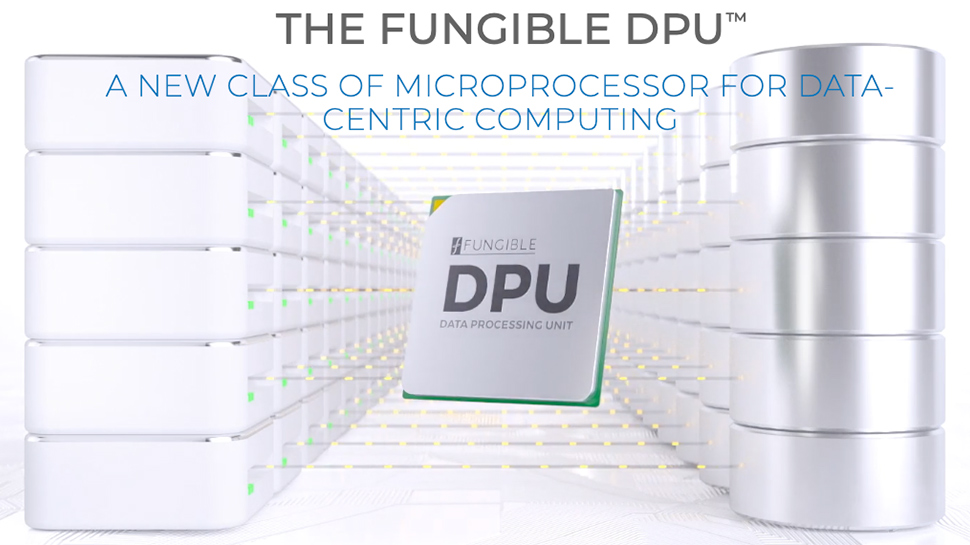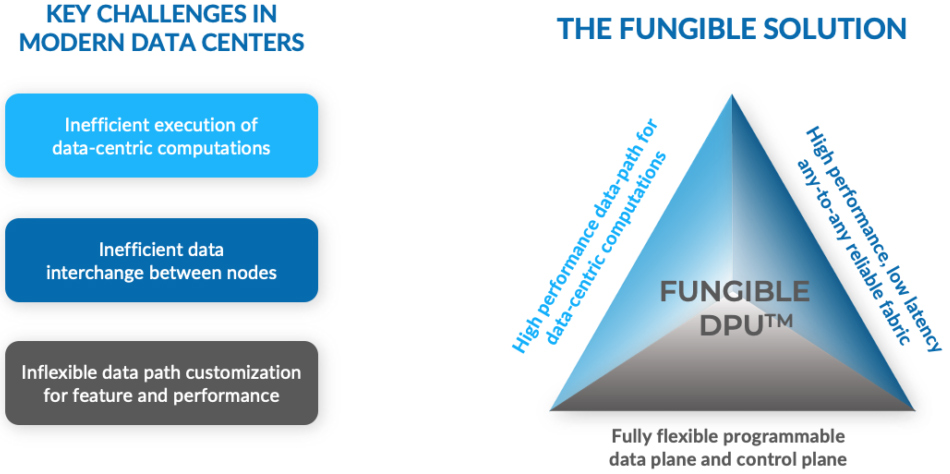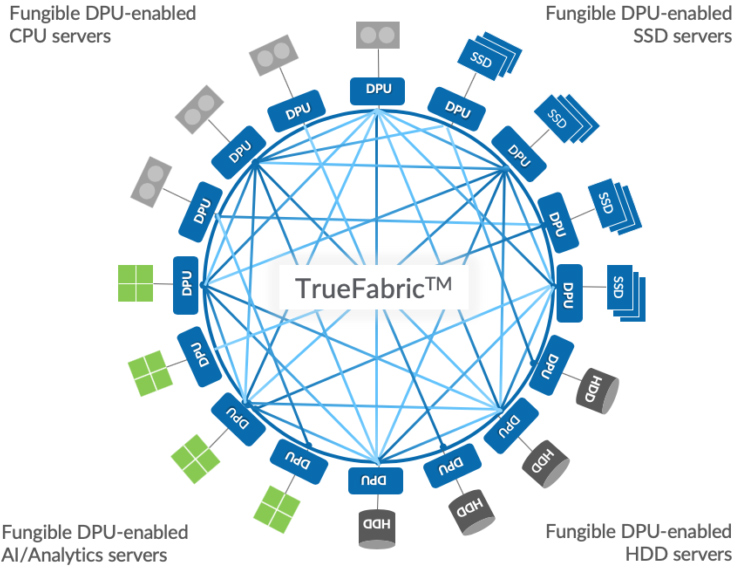Fungible’s DPUs to skyrocket datacenter performance
Fungible’s DPUs offload data-centric processors from DPUs

Sign up for breaking news, reviews, opinion, top tech deals, and more.
You are now subscribed
Your newsletter sign-up was successful
Fungible, an ambitious startup from California, has released its first products, the F1 and S1 data processing units (DPUs) that promise to radically improve performance and cut power consumption of hyperscale datacenters. The DPUs will sit between the CPU and the network fabric and perform data-centric computations at speeds well beyond those offered by processors.
Nowadays performance and efficiency of scale-out datacenters heavily depend on data exchange between nodes as well as data-centric computations. Each byte gets into a server via its network interface, processed by the CPU (or GPU, or FPGA) and gets stored locally.
Virtually all data-centric computations today — such as data transfer, data reduction, data security, data durability, data filtering and analytics — are performed by CPUs, which are not very efficient for these tasks, according to Fungible. Furthermore, network interface cards have their own limitations when it comes to low latency and scalability.
- The best SSDs: the top solid-state drives for your PC
- The best hard drives: the top HDD for desktops and laptops
- Best NAS devices: top Network Attached Storage for the home and office
A new class of processors
“The value proposition of scale-out infrastructure solutions appears straightforward, but in reality it is hard to implement it in a consistent and linearly scalable manner,” said Ashish Nadkarni, Group VP of Worldwide Infrastructure at IDC.
“Current compute technologies fall short in the vendor’s ability to create an ultra-low latency and ultra-scalable solution for high bandwidth data movement. The industry needs a holistic and end-to-end solution that can disaggregate and compose infrastructure resources at cloud scale.”

Enter DPUs. In a nutshell, Fungible’s DPUs are ‘microcomputers’ designed to act like advanced network adapters which orchestrate data movement between nodes and within nodes. In addition, these ‘microcomputers’ perform data-centric workloads over 10 times better than CPUs, something that promises to improve performance of the whole datacenter.
Fungible’s lineup of DPUs currently includes two products: the S1 200Gbps that is optimized for host-sized use cases and the F1 800Gbps aimed at high-performance storage, analytics, and security platforms. Both processors have similar capabilities designed to offload networking and data-related computations from the CPU.
Sign up to the TechRadar Pro newsletter to get all the top news, opinion, features and guidance your business needs to succeed!
“The Fungible DPU, which is optimized for data-centric compute, enables line rate storage and security data services, unleashing the full capabilities and blazing fast performance of NVMe SSDs over the network,” said Young Sohn, President and Chief Strategy Officer for Samsung Electronics.
Some technical details
The flagship Fungible F1 DPU is based around 52 MIPS64 fully cache coherent cores working at 1.6GHz and capable of processing 200 threads that are coupled with multiple application-specific hardware accelerators (DMA engines, SHA-3, compression/decompression, RAID, regex, security, etc.), 32MB L2 cache, along with its own local (8GB HBM) and external RAM (two DDR4 channels). The chip has eight 100GbE integrated controllers, 64 PCIe 3.0 lanes to connect to other parts of the system and so on. Based on exact configuration, each F1 DPU consumes from 120W to 150W.

Fungible’s DPUs are compatible with industry standards and are transparent for existing datacenter hardware and software. Meanwhile, DPUs run their own FunOS that can be reprogrammed using to add certain capabilities.
But DPUs from Fungible are not just accelerators. While these processors use IPoE networks and are compatible with existing switches, they use their own networking protocol called TrueFabric to reduce latencies. To that end, datacenters will have to deploy hundreds or thousands of DPU-enabled racks to take advantage of the technology.
Ready out-of-box

To ease deployment of DPUs, Fungible provides a full set of software that enables DPU-enabled products to be used “out of the box”. The list includes data-path stacks, host drivers and agents for x86, and a set of centralized cluster services that provides management, control and visibility of Fungible DPU-enabled products.
“In fact, we took great care to ensure our technology imposes no changes to applications or system software and our solutions fully enable our customers to leverage volume economics,” said Bertrand Serlet, co-founder of Fungible.
Fungible is working with companies like Alibaba and Juniper Networks to build DPU-enabled server platforms.
Anton Shilov is the News Editor at AnandTech, Inc. For more than four years, he has been writing for magazines and websites such as AnandTech, TechRadar, Tom's Guide, Kit Guru, EE Times, Tech & Learning, EE Times Asia, Design & Reuse.